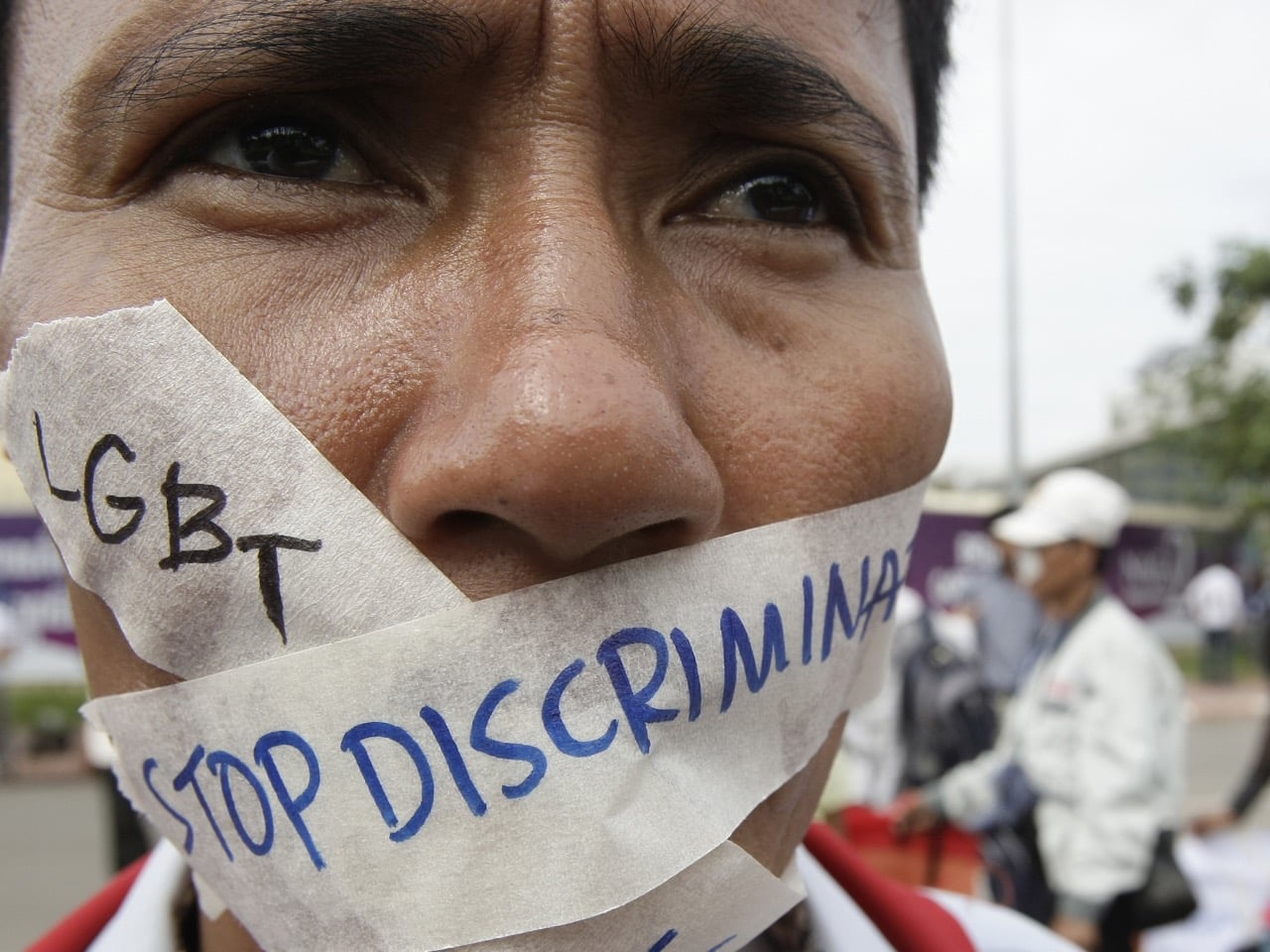Nearly all of the trans women surveyed by CCHR experienced some kind of harassment while in public spaces because of their trans identities.
This statement was originally published on cchrcambodia.org on 21 September 2016.
The Cambodian Center for Human Rights (“CCHR”) publishes today – 21 September 2016 – a research report entitled “Discrimination against Transgender Women in Cambodia’s Urban Centers” (“the Report”). It is available for download in both English and Khmer on CCHR’s website. The Report is produced by CCHR’s Sexual Orientation and Gender Identity (“SOGI”) Project and is the product of research conducted in the Kingdom of Cambodia (“Cambodia”)’s urban centers on the prevalence and forms of discrimination against transgender (“trans”) women.
The Report is based on the findings of CCHR’s field research, collected through 135 surveys conducted in April 2016 in Phnom Penh, Siem Reap, Preah Sihanouk and Battambang provinces. The survey asked respondents about their experiences and perceptions of discrimination based on their gender identity/expression, both from state (e.g. police, local authorities and schools) and non-state (e.g. family, employment, relationships) actors. The report also analyzes the legal, social and cultural context in which Cambodia’s trans women live.
CCHR’s research reveals that Cambodian trans women are subject to shockingly high levels of discrimination. Nearly all of the trans women surveyed by CCHR experienced some kind of harassment while in public spaces because of their trans identities, in most cases multiple times over the past 12 months. This proportion of respondents who have experienced verbal abuse (92%), physical violence (43%), sexual assault (31%) and rape (25%) in public spaces because of their trans identities shows that Cambodian streets are alarmingly unsafe spaces for trans women. Discrimination in employment is another serious issue uncovered by this research, with 34% of respondents reporting being refused employment, and 25% reporting dismissal from employment, due to their trans identities.
The research also suggests that many families fail to understand and accept transgender family members after they come out, with 49% reporting they have previously felt that they needed to leave the family home because of their trans identities. Notably, more than half (53%) of all respondents’ families had attempted to force them to enter into a heterosexual marriage.
A particularly alarming finding relates to the extremely high levels of harassment and discrimination experienced by trans women from the police, with large numbers of respondents having been arrested and detained, and often abused, by the police because of their trans identities. Over a third (39%) of respondents had been arrested, and of these, 92% believe that they were arrested due to their trans identity. Approximately one third (34%) of all respondents reported being wrongly accused of a crime. Another troubling finding detailed in the Report is the previously unreported practice of trans women being publicly humiliated and forced to bathe in the river by some local police, an extra-legal punishment which may amount to torture under international human rights law. One victim of this practice summed up how hopeless many trans women feel about their prospects of finding justice in Cambodia’s justice system:
“I’ve been faced with violence from the police in the past, but it’s true I haven’t been to the police station to report it. I don’t think there’s any point; I wouldn’t win. They wouldn’t even pay me any attention. I want it to stop, though; I want the authorities to respect the rights of srey sros and stop violations.”
While senior figures in the Royal Government of Cambodia (the “RGC”) have been eager to present Cambodia as a Lesbian, Gay, Bisexual and Transgender (“LGBT”) friendly country in recent years, this research suggests a much harsher reality on the ground. The findings of this research indicate that the treatment of trans women requires immediate attention if Cambodia is to meet its international human rights obligations.
CCHR calls on the RGC to immediately address widespread discrimination against trans women and to follow the detailed recommendations set out in CCHR’s Report, including by introducing legislation that explicitly prohibits discrimination on grounds of gender identity and expression.
The Report further recommends the RGC to tackle the widespread abuse of transgender women’s rights by police, by investigating all allegations of abuse of trans women by police officers and taking appropriate disciplinary action, as well as incorporating training on human rights, LGBT rights, and non-discrimination in the training curriculum for all trainee police officers.
CCHR’s SOGI Project Coordinator Nuon Sidara comments:
“This research provides important insights into the discrimination faced by transgender women on a daily basis in Cambodia. Cambodian trans women face limited employment opportunities, rejection from their families and shocking levels of abuse and harassment from the police. The data points to an urgent need for the RGC to take immediate steps to safeguard the rights of trans women.”



